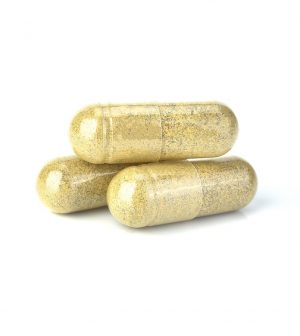- Could Your Grocery Store Meat Be Causing Recurring UTIs?
- Are You Making This Expensive Thermostat Error This Winter?
- Recognizing the Signs of Hypothyroidism
- 10 Strategies to Overcome Insomnia
- Could Artificial Sweeteners Be Aging the Brain Faster?
- Techniques for Soothing Your Nervous System
- Does the Water in Your House Smell Funny? Here’s Why
- Can a Daily Dose of Apple Cider Vinegar Actually Aid Weight Loss?
- 6 Health Beverages That Can Actually Spike Your Blood Sugar
- Treatment Options for Social Anxiety Disorder
Chinese Botanical Medicine Eases a Cancer Treatment Side Effect

An experimental drug based on ancient Chinese herbal medicine can help ease the toxic side effects of chemotherapy and radiation therapy in cancer patients, the results of a small new trial results suggest.
A small group of 24 patients experienced fewer GI side effects from their treatment for rectal cancer after they took YIV-906, researchers reported recently in the Journal of Gastrointestinal Oncology.
YIV-906 is based on an 1,800-year-old treatment for stomach ailments that combined licorice, dates, peonies and skullcap, researchers said.
“This study is the first demonstration of YIV-906’s effectiveness in reducing GI toxicity caused by chemotherapy and radiation, showing the medicine’s potential of improving the patient’s quality of life while increasing treatment effectiveness,” said co-researcher Yung-Chi Cheng, a professor of pharmacology at Yale School of Medicine who helped develop the drug.
For the four-year, phase 2 study, the patients were given capsules of YIV-906 along with chemo and radiation prior to surgery.
At the time of surgery, about 17% of patients had a complete or near-complete response to their cancer treatment, while the overall survival rate at five years was 82%, results show.
Only two cases of severe diarrhea were reported among the patients. YIV-906 is meant to ease side effects like diarrhea, fatigue and nausea.
“We didn’t have any serious toxicity associated with the drug and patients found taking the drug in pill form very easy and tolerable,” senior researcher Dr. Susan Higgins, a professor of therapeutic radiology and of obstetrics, gynecology, and reproductive sciences at Yale.
The results warrant further testing of YIV-906 in more patients with other types of cancer, such as pelvic cancer, researchers said in a Yale new release.
People taking YIV-906 might be able to withstand harsher doses of both chemo and radiation therapy, making their cancer treatment more effective, the researchers added.
More information
Yale School of Medicine has more about YIV-906.
SOURCE: Yale Cancer Center, news release, Aug. 9, 2024
Source: HealthDay
Copyright © 2026 HealthDay. All rights reserved.










